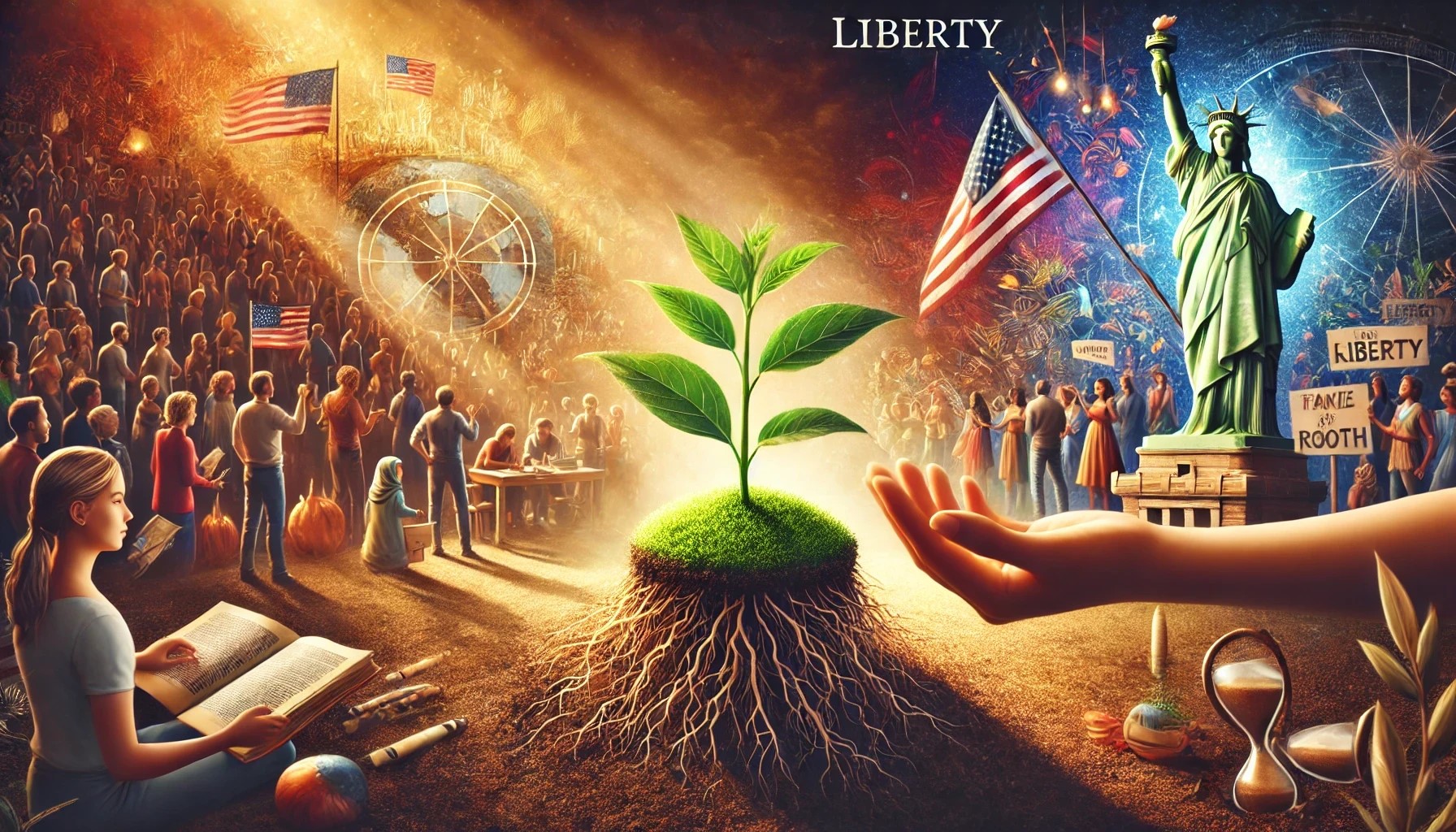
🕊️ “Liberty, when it begins to take root, is a plant of rapid growth.”
Description: Portrait of George Washington (1732–99)
Source: https://www.clarkart.edu/ArtPiece/Detail/George-Washington-(1)
Author: Gilbert Stuart (1755–1828)
George Washington reminds us that once freedom takes hold, it can grow quickly and transform lives. Nurture the seeds of freedom in your life and community. Watch as they flourish and grow. Contribute to the growth of liberty around you by supporting and protecting the freedoms we cherish. 🌟🌿
Today, take small but meaningful actions to promote and uphold liberty. Whether it’s standing up for someone’s rights, educating yourself and others about important issues, or engaging in acts of kindness and justice, your efforts can help cultivate a more free and fair society. 🌍✊
Remember, the growth of liberty starts with each of us. By nurturing these seeds, we create a community where freedom thrives and everyone has the opportunity to prosper. Embrace your role in this growth and inspire others to do the same. Together, we can create a world where liberty and justice flourish. 🌱✨
George Washington, born on February 22, 1732, in Westmoreland County, Virginia, was the first President of the United States and a key figure in the founding of the nation. He is often referred to as the “Father of His Country” for his pivotal role in the American Revolutionary War, the drafting of the Constitution, and the establishment of the United States government.
Washington’s early life was shaped by the agricultural and frontier environment of colonial Virginia. He worked as a surveyor before joining the Virginia militia, where he gained military experience during the French and Indian War. His leadership abilities and reputation for integrity made him a respected figure among the colonial leaders.
In 1775, Washington was appointed Commander-in-Chief of the Continental Army by the Second Continental Congress. His leadership was instrumental in the American colonies’ victory over Great Britain in the Revolutionary War. Despite facing numerous challenges, including shortages of supplies and training, Washington’s resilience and strategic acumen led to key victories, such as the crossing of the Delaware River and the decisive Battle of Yorktown in 1781.
After the war, Washington retired briefly to his plantation at Mount Vernon but was soon called upon to preside over the Constitutional Convention in 1787. His support was crucial in the drafting and ratification of the U.S. Constitution.
In 1789, Washington was unanimously elected as the first President of the United States. During his two terms in office, he set many precedents for the new government, including the establishment of a Cabinet system, the implementation of a federal financial structure, and the tradition of a peaceful transfer of power. He emphasized national unity and warned against political factions and foreign alliances in his Farewell Address.
Washington’s legacy extends beyond his presidency. He was a man of strong character, known for his dedication to duty, personal integrity, and commitment to the principles of republicanism. He declined a third term and retired to Mount Vernon in 1797, where he continued to manage his estate and engage in public affairs until his death on December 14, 1799.
George Washington’s contributions to the founding and shaping of the United States have left an enduring legacy, making him a symbol of leadership, perseverance, and the pursuit of liberty. His life and work continue to inspire people around the world.